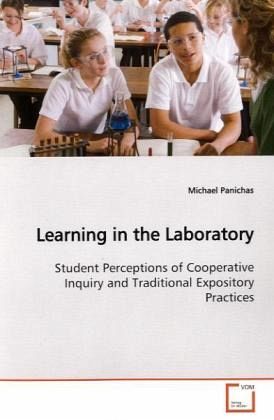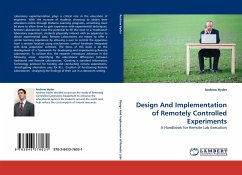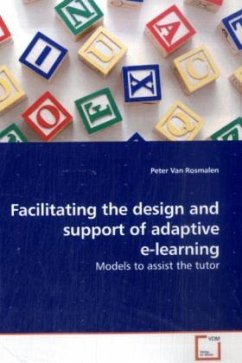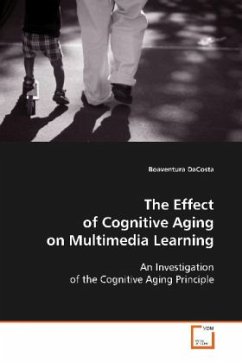
Learning in the Laboratory
Student Perceptions of Cooperative Inquiry and Traditional Expository Practices
Versandkostenfrei!
Versandfertig in 6-10 Tagen
52,99 €
inkl. MwSt.

PAYBACK Punkte
26 °P sammeln!
Introducing students to scientific inquiry has beenshown to enhance both critical thinking skills andengagement in the learning process. Yet bringingnovel teaching strategies into the classroom alsorequires assessment of their effectiveness forstudent learning. This book presents a formativecase study evaluation of chemistry laboratory courseswhich are structured with both traditional expositorylab exercises and cooperative inquiry projects. Focusing on student perceptions of these courses,this study illustrates how these two teachingpractices impact student learning both academicallyand affec...
Introducing students to scientific inquiry has been
shown to enhance both critical thinking skills and
engagement in the learning process. Yet bringing
novel teaching strategies into the classroom also
requires assessment of their effectiveness for
student learning. This book presents a formative
case study evaluation of chemistry laboratory courses
which are structured with both traditional expository
lab exercises and cooperative inquiry projects.
Focusing on student perceptions of these courses,
this study illustrates how these two teaching
practices impact student learning both academically
and affectively. Along with a detailed presentation
of the quantitative and qualitative research
methodologies, this book includes an historical
overview of theory and practice in laboratory
teaching, as well as a philosophical discussion of
how the findings offer a bridge between the idea of
constructivism as an epistemology, and the use of
cooperative inquiry as a pedagogy. Researchers and
practitioners of science education will find valuable
insights into the process of bringing positive change
to learning in the laboratory.
shown to enhance both critical thinking skills and
engagement in the learning process. Yet bringing
novel teaching strategies into the classroom also
requires assessment of their effectiveness for
student learning. This book presents a formative
case study evaluation of chemistry laboratory courses
which are structured with both traditional expository
lab exercises and cooperative inquiry projects.
Focusing on student perceptions of these courses,
this study illustrates how these two teaching
practices impact student learning both academically
and affectively. Along with a detailed presentation
of the quantitative and qualitative research
methodologies, this book includes an historical
overview of theory and practice in laboratory
teaching, as well as a philosophical discussion of
how the findings offer a bridge between the idea of
constructivism as an epistemology, and the use of
cooperative inquiry as a pedagogy. Researchers and
practitioners of science education will find valuable
insights into the process of bringing positive change
to learning in the laboratory.












